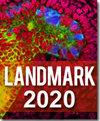Antiretroviral Drugs Impact Autophagy: Opportunities for Drug Repurposing
IF 3.1
4区 生物学
Q2 Immunology and Microbiology
引用次数: 0
Abstract
Autophagy is an evolutionarily conserved process in which intracellular macromolecules are degraded in a lysosomal-dependent manner. It is central to cellular energy homeostasis and to quality control of intracellular components. A decline in autophagic activity is associated with aging, and contributes to the development of various age-associated pathologies, including cancer. There is an ongoing need to develop chemotherapeutic agents to improve morbidity and mortality for those diagnosed with cancer, as well as to decrease the cost of cancer care. Autophagic programs are altered in cancer cells to support survival in genetically and metabolically unstable environments, making autophagy an attractive target for new chemotherapy. Antiretroviral drugs, which have dramatically increased the life-and health spans of people with human immunodeficiency virus (HIV) (PWH), have offered promise in the treatment of cancer. One mechanism underlying the antineoplastic effects of antiretroviral drugs is the alteration of cancer cell autophagy that can potentiate cell death. Antiretroviral drugs could be repurposed into the cancer chemotherapy arsenal. A more complete understanding of the impact of antiretroviral drugs on autophagy is essential for effective repurposing. This review summarizes our knowledge of the effects of antiretroviral drugs on autophagy as potential adjunctive chemotherapeutic agents, and highlights gaps to be addressed to reposition antiretroviral drugs into the antineoplastic arsenal successfully.抗逆转录病毒药物对自噬的影响:药物再利用的机遇
自噬是一个进化保守的过程,在这个过程中,细胞内大分子以溶酶体依赖的方式降解。它是细胞能量平衡和细胞内成分质量控制的核心。自噬活性的下降与衰老有关,并导致包括癌症在内的各种与年龄相关的病症的发生。人们一直需要开发化疗药物,以改善癌症患者的发病率和死亡率,并降低癌症治疗的成本。自噬程序在癌细胞中发生改变,以支持在基因和代谢不稳定的环境中生存,这使得自噬成为新化疗的一个有吸引力的靶点。抗逆转录病毒药物大大延长了人类免疫缺陷病毒(HIV)感染者(PWH)的生命和健康寿命,为癌症治疗带来了希望。抗逆转录病毒药物抗肿瘤作用的一个基本机制是改变癌细胞的自噬作用,从而增强细胞的死亡。抗逆转录病毒药物可被重新用于癌症化疗。更全面地了解抗逆转录病毒药物对自噬作用的影响对于有效的再利用至关重要。本综述总结了我们对作为潜在辅助化疗药物的抗逆转录病毒药物对自噬作用的认识,并强调了要将抗逆转录病毒药物成功地重新定位到抗肿瘤药物库中需要解决的差距。
本文章由计算机程序翻译,如有差异,请以英文原文为准。
求助全文
约1分钟内获得全文
求助全文
来源期刊

Frontiers in Bioscience-Landmark
生物-生化与分子生物学
CiteScore
3.40
自引率
3.20%
发文量
301
审稿时长
3 months
期刊介绍:
FBL is an international peer-reviewed open access journal of biological and medical science. FBL publishes state of the art advances in any discipline in the area of biology and medicine, including biochemistry and molecular biology, parasitology, virology, immunology, epidemiology, microbiology, entomology, botany, agronomy, as well as basic medicine, preventive medicine, bioinformatics and other related topics.
 求助内容:
求助内容: 应助结果提醒方式:
应助结果提醒方式:


